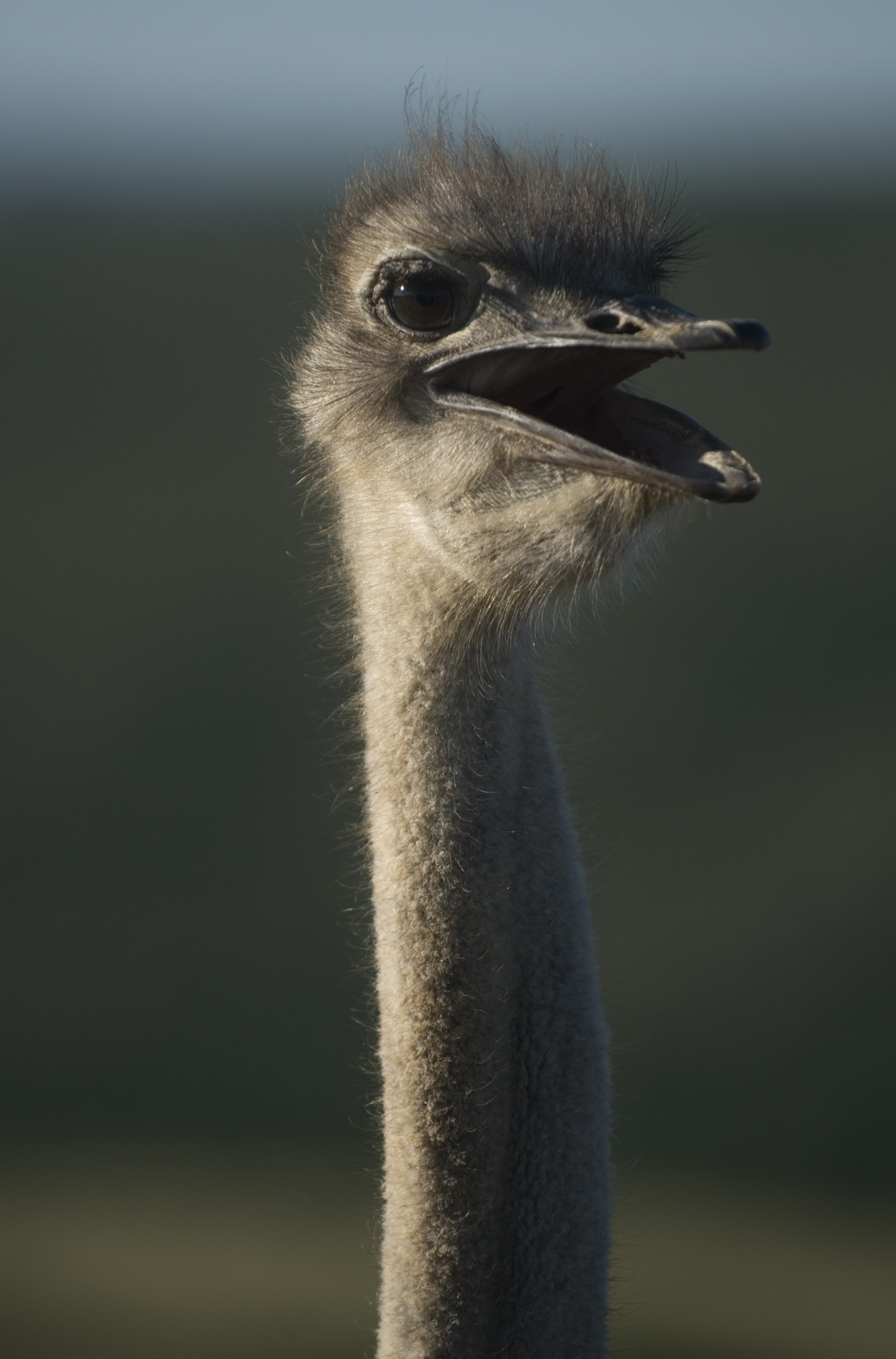
GRAHAMSTOWN, South Africa (BP)–Baby ostriches — 100 of them — scamper in all directions, pecking at the dirt, a stray spoon and anything that moves or glitters. In a few months, the Hanise family will sell these birds for their meat, hide and feathers.
It’s a brand-new venture for the family living in the hills outside Grahamstown, South Africa. They see the ostriches as an opportunity to earn money and have a shot at a better life. Bob Morris sees the birds as an entree to building relationships, sharing the Gospel and helping start new churches among the 8 million Xhosa people living in South Africa.
For the last two years, Morris, a missionary with the International Mission Board, has been working with Martin Fick on the ostrich project. Fick, a tall hulk of a farmer from Zimbabwe, started the project with the native African birds to provide jobs for the poor and to teach Christian principles.
After Fick’s team drops off the batch of birds at the farm, Morris prays with the family.
“There have been many projects before, but this one is different,” Tempela Hanise said while watching his family shove food into the baby birds’ mouths.
“There has never been a project like this with a pastor,” he added. “Having a prayer here, for instance, has never been done before.”
Morris and his wife Susan, who call Park Street Baptist Church in Columbia, S.C., their home church, have navigated rough roads for nearly 20 years to minister among the Xhosa, who live in and around two territories. One is known as the Transkei, which means “the area beyond the Kei River.” The other is called Ciskei, which means “on this side of the Kei River.”
The Xhosa have lived in these areas since the days of apartheid — a system of racial segregation from 1948 to 1994. Though those days are over, the people continue to struggle to make a living in this dry land, viewed by some as uninhabitable.
“They were pretty much dumped here with nothing,” Morris said. “It’s a tough place to live. There’s just rocks and heat. There’s very little soil.”
Ostriches, however, tend to thrive in this warm climate — as long as it doesn’t get too hot. About 12 birds died on one unusually hot day when the temperature rose to 115 degrees.
“It has been hard, but God is faithful,” said Zandi Bosi, one of the farmers who lost an ostrich to the heat. “[The ostrich project] helps feed my children and helps them go to school. God is a part of this project and has given me an opportunity.”
Each farmer is responsible for purchasing the birds. Fick, Morris and other locals on the team help provide biblically-based training and mentorship, while meeting physical and spiritual needs.
Fick believes helping someone meet his or her basic needs is the least a Christian should do.
“Your faith isn’t actually worth much if you say to a man ‘Go and be warm and well-fed,’ if in fact you’re not prepared to do anything for him in a practical way to change the quality of his life,” Fick said. “So that is very inspirational for us.”
The project started with 12 farmers. Today there are more than 60, with a couple hundred more on a waiting list.
The key to making the project successful, Fick said, is to instill a sense of ownership among the people, most of whom live in cramped one- or two-room houses.
“There are so many [Xhosa] people who are … exploited and downtrodden,” Fick said. “For us, there is this restoration of dignity and self-worth.”
That’s important, he said, because seeing how God values the people brings meaning and purpose to their lives.
A number of villagers attend a small church and a couple of Bible studies Morris helped start in the Transkei area. Still, many Xhosa cling to witchcraft and ancestor worship.
Noma, a woman in Morris’ congregation, claims to be a Christian but struggles to let go of ancestor worship. Her family pressures her to make a traditional beer to gain the favor of the dead.
“I challenged her on that,” Morris said. “I said ‘You’re a Christian. You should be giving your attention and allegiance only to God,’ and she said, ‘But my family won’t let me stop making it.'”
Morris also has struggled to reach the Xhosa men, who often leave their homes to find jobs. One older man in the community tried to run off the Morrises, but they keep coming back.
Last year, a volunteer team from the United States helped Morris reach out to the Xhosa through evangelistic projects, and more than 400 people raised their hands to receive Christ as their Savior.
Morris hopes the Xhosa will let go of their traditions and trust Christ for all their needs, even if it takes the help of ostriches.
–30–
Shawn Hendricks is a writer for the International Mission Board.
















